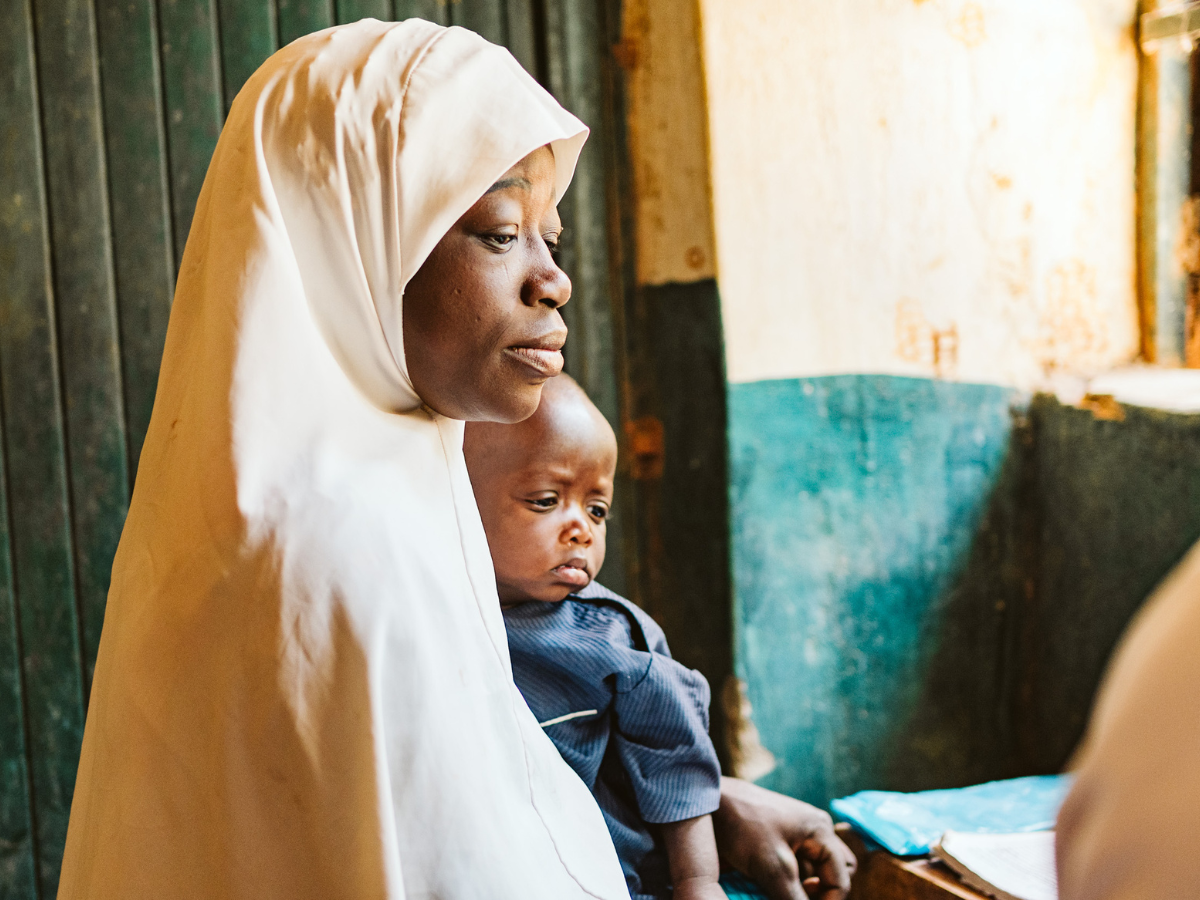No child should die of a preventable disease.
Small cash incentives are a proven, cost-effective way to boost vaccination rates and save lives.
Infants served by the program
Cash transfers issued after verifying vaccinations
Retention rate through vaccination cycle
Why Childhood Vaccines in Nigeria?
Childhood vaccines prevent two to three million deaths every year. They are recognized as one of the most cost-effective child health interventions in the world (source). Yet, globally, an estimated 25 million infants did not receive routine vaccinations in 2021 (source).
Nigeria is home to just 3% of the world’s population, yet it accounts for 13% of the world’s mortality of children under five, the second highest rate in the world. Low immunization rates are a significant contributor to its high under-five mortality rate (120 deaths per 1,000 live births)—an estimated 40% of deaths of children under five are from vaccine-preventable diseases. Northern Nigeria, where our program operates, is the region with the lowest vaccination coverage in Nigeria.
Latest on the Blog
Sign up for our newsletter.
Our newsletters provide updates and program data. You can change your e-mail settings at anytime.
How Small Cash Incentives Work
The All Babies Program
Poor people living in remote, rural areas often face significant barriers to accessing healthcare. In Nigeria, routine childhood vaccinations are provided at government clinics free of charge, but caregivers often find it difficult to afford transportation and face other challenges to taking their baby to a clinic—often half a day’s trip away or longer. These round-trip journeys to the clinic must be made six times to complete a childhood routine vaccination schedule, all within the first year of a baby’s life.
Offering a monetarily small, yet significant, incentive—which covers the cost of transportation to a clinic plus food—has been proven through a randomized evaluation to provide enough of a “nudge” to double the percentage of infants who get fully vaccinated, with life saving benefits. This model—New Incentives’ All Babies program—was developed based on evidence from successful immunization programs from around the world and was independently and rigorously evaluated in Nigeria before we began scaling it up. Now, as we expand, we are gathering and using detailed data to monitor and inform our day-to-day operations and strategy, ensuring we continue to make the biggest impact possible per dollar.
New Incentives works within and in close partnership with local government institutions. Our impact would not be possible without our local partners in Nigeria.

Verify infant gets vaccinated and meets condition

Caregiver/parent receives cash transfer and information about vaccinations
Visit
Vaccines
Cash

₦ 1,000

Tetanus
Pertussis
Hepatitis B
HIB
₦ 1,000

Tetanus
Pertussis
Hepatitis B
HIB
₦ 1,000

Tetanus
Pertussis
Hepatitis B
HIB
₦ 1,000

₦ 1,000

₦ 1,000
.png)
₦ 1,000
At birth or soon after
BCG
OPV
Hep B
At 6, 10, and 14 weeks
+ ₦500
+ ₦500
Pertussis, Hepatitis B, and HIB
PENTA
PCV
OPV, 1 dose IPV
At 9 months
MCV
YF
Men A
What We Value

Evidence- and Data-Driven Decisions
Science, evidence, and data drive our program design and implementation.

Doing the Most Good
We seek to maximize impact and continuously evaluate methods to deliver the most good per dollar donated.

Accountability
We build tracking and verification into everything we do and promote a culture of critical thinking and self-assessment.
.svg)

New Incentives offers conditional cash transfers (CCTs) to incentivize infant vaccination in North West Nigeria. There is strong evidence that expanding vaccination reduces illness and death among young children. CCTs could plausibly be a cost-effective way to increase vaccination rates among children in areas like North West Nigeria where vaccine supply is adequate but uptake is low.
I think Conditional Cash Transfer programs are as close as you can come to a magic bullet in development. They are creating an incentive for families to invest in their own children’s futures. Every decade or so, we see something that can really make a difference, and this is one of those things.
.svg)
.svg)




%20(1).png)
%20(1).png)
.svg)


.svg)
%20(1).png)




.png)